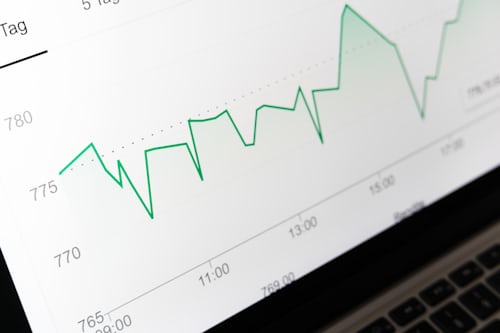


What are ETFs? - Explanation for beginners
ETFs are a rather new financial instrument that has numerous advantages over known forms of investment.
Definition: What are ETFs?
ETFs are exchange-traded index funds that are not actively managed. They track a stock index or different portfolios of stocks, government bonds and more. ETFs have their own security number and can convince through low costs and large risk diversification.
Get a great overview of this exciting and new topic in the following texts. ETFs offer excellent opportunities for private investors, but also have various risks.
Features of an ETF (Exchange Traded Fund)
The financial instrument Exchange Traded Fund is characterised by certain features that distinguish the trading of the financial instrument from others. Among other things, an ETF is particularly popular for beginners in trading because the representation of the index in the price development is comparatively more stable than with classic funds. This is due to the fact that an ETF invests in an entire market. Price fluctuations of individual market participants therefore only have a marginal effect on the price. The risks of default are therefore considered low with an ETF and are therefore a popular asset class among private investors and beginners who are pursuing a long-term strategy.
ETFs are further characterised by the fact that they are passive financial instruments. This means that investors invest either once or in the form of a savings plan in the index that the ETF tracks. The ETF is only sold again after years. On the one hand, this means that fluctuations are carried over the years and thus the return builds up over the long term. On the other hand, it means that investors do not have to actively trade. Investing once is already enough. For this reason, an ETF is a popular choice for building up one's own retirement provision.
The ETF is therefore also a very flexible financial instrument that can be adapted to one's own circumstances. Investors are not tied to the investment for years, but can buy and sell at will. Incidentally, you don't need much money to invest in an ETF. ETFs are among the most cost-effective asset classes. Even with a savings plan of 25 euros a month, an investment in an ETF is worthwhile thanks to compound interest. The following applies: The earlier you start ETF trading, the higher the potential return, even with a low capital investment.
So let's keep it simple: these are the features that characterise an ETF:
- Passive trading instrument
- Stable prices, hardly any volatility on the markets
- Relatively low risk
- Flexible trading possible
- Low capital investment
There are various types of Exchange Traded Funds, which can have a significant influence on your investment in sg-exness.com area. The most important rule before investing in ETFs is to find out exactly what the product is. In the descriptions below, I show several different types.
Physical Fund:
This ETF directly buys physical stocks from the stock market, directly replicating a stock index or diversified portfolio.
Synthetic Replication:
Here, any portfolio is created and swapped with a third-party counterparty. The company has to raise the return from the portfolio and thereby receives the return of the share index.
Distributing ETFs:
Here the dividends of the equity companies are distributed to all investors.
Accumulated ETFs:
The dividends are automatically reinvested in the ETF. In this way, the value increases additionally.
Footwear
Store Hours
| Monday | 10 am - 5 pm |
| Tuesday | 10 am - 5 pm |
| Wednesday | 10 am - 5 pm |
| Thursday | 10 am - 5 pm |
| Friday | 10 am - 5 pm |
| Saturday | 10 am - 2 pm |
| Sunday | Closed |
Discover all that we have to offer!
Don't let our home town store front or name fool you. Step in and discover all that we have to offer!
|
- Name Brand Outerwear and Extended Sizes - Hunting, Trapping and Fishing Gear - Equine Tack, Supplies and Show Clothing - NiteLite Products and Supplies - English and Western Clothing - Name Brand Boots and Hard to Find Sizes - Painted Ponies Collectibles |
- Camoflauge Portable Blinds and Stands - Jerky Cures & Seasonings - Guns, Ammo, Targets and Reloading Supplies - Home Decor & Native Indian Pottery - Decoys of all Kinds - Archery Products and Supplies -Jewelry, Hats, Wallets, Belts & Buckles |














